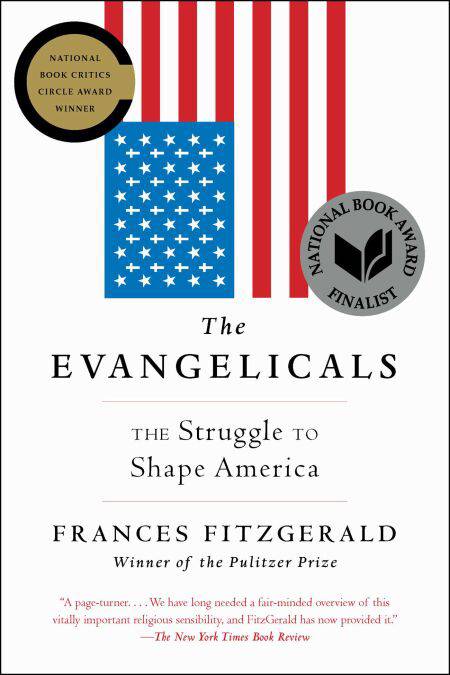
Vous voulez être sûr que vos cadeaux seront sous le sapin de Noël à temps? Nos magasins vous accueillent à bras ouverts. La plupart de nos magasins sont ouverts également les dimanches, vous pouvez vérifier les heures d'ouvertures sur notre site.
- Retrait gratuit dans votre magasin Club
- 7.000.000 titres dans notre catalogue
- Payer en toute sécurité
- Toujours un magasin près de chez vous
Vous voulez être sûr que vos cadeaux seront sous le sapin de Noël à temps? Nos magasins vous accueillent à bras ouverts. La plupart de nos magasins sont ouverts également les dimanches, vous pouvez vérifier les heures d'ouvertures sur notre site.
- Retrait gratuit dans votre magasin Club
- 7.000.0000 titres dans notre catalogue
- Payer en toute sécurité
- Toujours un magasin près de chez vous
20,12 €
+ 20 points
Format
Description
* Winner of the 2017 National Book Critics Circle Award
* National Book Award Finalist
* Time magazine Top 10 Nonfiction Book of the Year
* New York Times Notable Book
* Publishers Weekly Best Books of 2017
This “epic history” (The Boston Globe) from Pulitzer Prize-winning historian Frances FitzGerald is the first to tell the powerful, dramatic story of the Evangelical movement in America—from the Puritan era to the 2016 election. “We have long needed a fair-minded overview of this vitally important religious sensibility, and FitzGerald has now provided it” (The New York Times Book Review).
The evangelical movement began in the revivals of the eighteenth and nineteenth centuries, known in America as the Great Awakenings. A populist rebellion against the established churches, it became the dominant religious force in the country.
During the nineteenth century white evangelicals split apart, first North versus South, and then, modernist versus fundamentalist. After World War II, Billy Graham attracted enormous crowds and tried to gather all Protestants under his big tent, but the civil rights movement and the social revolution of the sixties drove them apart again. By the 1980s Jerry Falwell and other southern televangelists, such as Pat Robertson, had formed the Christian right. Protesting abortion and gay rights, they led the South into the Republican Party, and for thirty-five years they were the sole voice of evangelicals to be heard nationally. Eventually a younger generation proposed a broader agenda of issues, such as climate change, gender equality, and immigration reform.
Evangelicals now constitute twenty-five percent of the American population, but they are no longer monolithic in their politics. They range from Tea Party supporters to social reformers. Still, with the decline of religious faith generally, FitzGerald suggests that evangelical churches must embrace ethnic minorities if they are to survive. “A well-written, thought-provoking, and deeply researched history that is impressive for its scope and level of detail” (The Wall Street Journal). Her “brilliant book could not have been more timely, more well-researched, more well-written, or more necessary” (The American Scholar).
* National Book Award Finalist
* Time magazine Top 10 Nonfiction Book of the Year
* New York Times Notable Book
* Publishers Weekly Best Books of 2017
This “epic history” (The Boston Globe) from Pulitzer Prize-winning historian Frances FitzGerald is the first to tell the powerful, dramatic story of the Evangelical movement in America—from the Puritan era to the 2016 election. “We have long needed a fair-minded overview of this vitally important religious sensibility, and FitzGerald has now provided it” (The New York Times Book Review).
The evangelical movement began in the revivals of the eighteenth and nineteenth centuries, known in America as the Great Awakenings. A populist rebellion against the established churches, it became the dominant religious force in the country.
During the nineteenth century white evangelicals split apart, first North versus South, and then, modernist versus fundamentalist. After World War II, Billy Graham attracted enormous crowds and tried to gather all Protestants under his big tent, but the civil rights movement and the social revolution of the sixties drove them apart again. By the 1980s Jerry Falwell and other southern televangelists, such as Pat Robertson, had formed the Christian right. Protesting abortion and gay rights, they led the South into the Republican Party, and for thirty-five years they were the sole voice of evangelicals to be heard nationally. Eventually a younger generation proposed a broader agenda of issues, such as climate change, gender equality, and immigration reform.
Evangelicals now constitute twenty-five percent of the American population, but they are no longer monolithic in their politics. They range from Tea Party supporters to social reformers. Still, with the decline of religious faith generally, FitzGerald suggests that evangelical churches must embrace ethnic minorities if they are to survive. “A well-written, thought-provoking, and deeply researched history that is impressive for its scope and level of detail” (The Wall Street Journal). Her “brilliant book could not have been more timely, more well-researched, more well-written, or more necessary” (The American Scholar).
Spécifications
Parties prenantes
- Auteur(s) :
- Editeur:
Contenu
- Nombre de pages :
- 752
- Langue:
- Anglais
Caractéristiques
- EAN:
- 9781439143155
- Date de parution :
- 03-04-17
- Format:
- Ebook
- Protection digitale:
- Adobe DRM
- Format numérique:
- ePub







